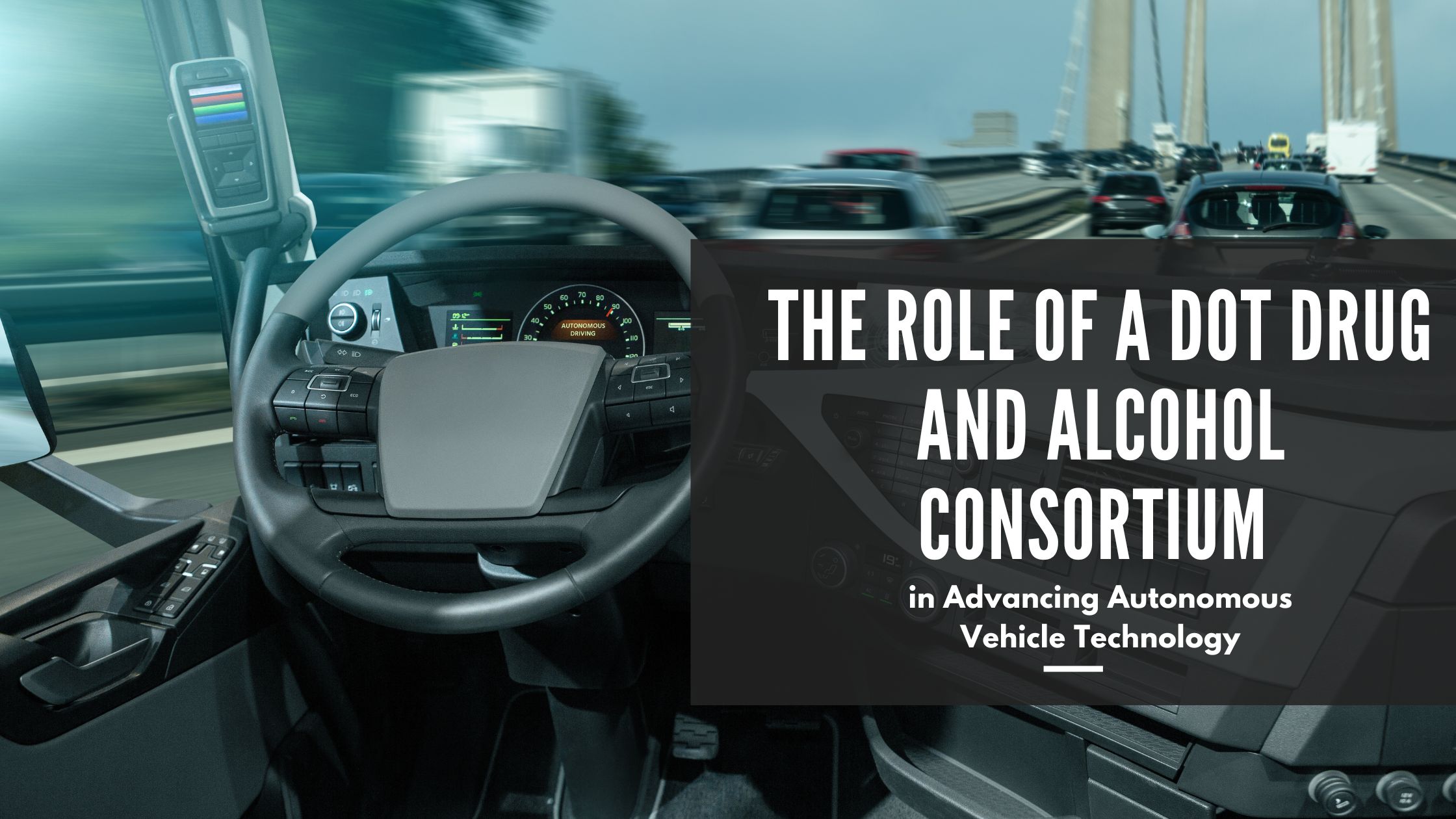The Role of a DOT Drug and Alcohol Consortium in Advancing Autonomous Vehicle Technology

01/09/2023 20:21
Autonomous vehicles, also known as self-driving cars, are vehicles that are
able to navigate and operate without the need for human input. These vehicles
have the potential to revolutionize transportation, offering increased
efficiency, safety, and accessibility. However, the development and deployment
of autonomous vehicles also require careful consideration of a range of
technical, legal, and ethical issues.
Truck road users running safe operation while using innovative technologies
or assistive technology are big trends now.
The government and even private companies seek the support of DOT Drug and
Alcohol Consortiums. This is a program administered by the US Department of
Transportation's Federal Highway Administration for education programs.
These consortiums help on ensuring the safety of autonomous vehicles and
advance the state of the art in this emerging technology. It is really already
the 21st century when accessible transportation of goods started to be
automated via Automated Driving Systems.
In particular, they will play a key role in the testing and validation of autonomous
vehicle safety systems, as well as in developing guidelines and best practices
for drug and alcohol use in the operation of these vehicles.
The Role of a Consortium in Ensuring the Safety of Autonomous Vehicles
Ensuring the safety of autonomous vehicles part of the support given by a
DOT Drug and Alcohol Consortium. To this end, they are involved in the testing
and validation of autonomous vehicle safety systems, including sensor
technology and decision-making algorithms. This work helps to ensure that
autonomous vehicles are able to accurately perceive their surroundings and make
appropriate decisions in a variety of situations.
In addition to testing and validation, a consortium also supports developing
guidelines and best practices for drug and alcohol use in the operation of
autonomous vehicles. Given the important role that human oversight and
intervention can play in the operation of these vehicles, it is critical to
ensure that operators are sober and fit for duty.
DOT consortiums work with industry and academia to establish standards and
protocols for drug and alcohol testing, as well as develop educational
materials and training programs to promote the safe and responsible use of
autonomous vehicles.
Overall, the work of the DOT Drug and Alcohol Consortium is crucial in
ensuring the safety of autonomous vehicles and building public trust in this
emerging technology.
Case studies of a Certain Consortium While Working on Autonomous Vehicle
Technology
A DOT Drug and Alcohol Consortium has been involved in a number of projects
focused on advancing autonomous vehicle technology. Here are a couple of
examples:
Example 1: In one project, the consortium partnered with a
leading research institute to investigate ways to improve the accuracy and robustness
of sensors used in autonomous vehicles. The goal of this project was to enhance
the ability of these vehicles to accurately perceive and interpret their
surroundings, even in challenging conditions such as low light or inclement
weather. Through this project, that consortium supported the development of
novel sensor technologies and algorithms that have the potential to
significantly improve the performance of autonomous vehicles.
Example 2: Another project supported by this consortium
focused on developing algorithms for safe and efficient operation of autonomous
vehicles in urban environments. This project brought together a team of
researchers from academia and industry to address the complex challenges posed
by navigating crowded city streets. The team developed algorithms that enable
autonomous vehicles to make intelligent decisions based on factors such as
traffic patterns, pedestrian and cyclist behavior, and road conditions.
The results of this project have the potential to enable the deployment of
autonomous vehicles in a wide range of urban settings.
Overall, these examples illustrate the important role that the DOT Drug and
Alcohol Consortium plays in advancing the state of the art in autonomous
vehicle technology.
Conclusion
Future prospects for the development of autonomous vehicles and the
continued importance of safety considerations
The majority of DOT Consortiums today are also actively involved in
supporting research and development projects focused on advancing the state of
the art in autonomous vehicle technology. By funding and collaborating on
projects that address technical challenges and opportunities in this field,
these consortiums are helping to drive progress and pave the way for the
deployment of autonomous vehicles on public roads.
As automated vehicles continue to evolve and become more widely adopted, the
work of the DOT Drug and Alcohol Consortium will remain important in ensuring
the safety and reliability of these vehicles.
We at Labworks USA are one of these consortiums. There is no other way but
to support the trend. At the same time, we still make sure that we are still
able to support our present truckers with all our best.
Reach out to us today and let us help you with your DOT Drug and Alcohol testing needs.
Back to Blogs

